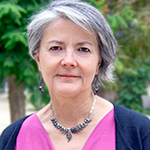Background
From the late eighties, professional care providers’ view of aging characterized by disengagement and loss of functions shifted towards promoting active aging. Nonetheless, there is an imbalance between life goals and expectations of older persons and professional caregivers’ views on necessary care, impacting the ability of care providers to encounter care recipients’ expectations in a satisfying way.
The challenges placed by aging societies are accommodated by extensive state provision of care in Sweden, while the family is the major provider in India. New challenges are the retrenchment of state involvement in Sweden, and transforming family structures in India placing demand for increased institutionalised care provision.
Aims of the study
Our aims are to explore through comparative study in two municipalities in India and Sweden: the importance of older persons’ diverse identities and conditions for how they perceive: a) successful and active aging b) the kind of interventions desired c) the preferred providers of these; to which degree the kind of interventions provided by local care providers reflect the desires of older persons they provide care for.
We are to develop a model for designing interventions sensitive to the desires of community based elderly care-receivers. Mixed-methods-design will be applied in both countries: Qualitative studies by interviews with old adults about their perceptions of active ageing combined with a quantitative measurement of old adults’ experiences of ability to act; The results are to be incorporated into Delphi studies about the care providers’ view of active-ageing leading to reflexive processual development model of culture-sensitive care inputs of active aging.
A systematic comparison of the two countries can contribute to better understanding the importance of gender, social, cultural diversity and its role in forming active aging interventions and provide guidance for municipal care providers.
Publications
Ildikó Asztalos Morell, Santa De, Pravina Mahadalkar, Carl Johansson and Lena-Karin Gustafsson (2020). Silence or Voice? Agency Freedom among Elderly Women Living in Extended Families in Urban India. International Journal of Environmental Research and Public Health, 2020, 17, 8779; doi:10.3390/ijerph17238779. https://www.mdpi.com/1660-4601/17/23/8779
Publications in the pipeline
Carl Johansson, Ildikó Asztalos Morell, Daniel Lindberg & Lena-Karin Gustafsson “Spotting good ageing: using welfare theory of health to frame the agency of older adults with immigrant backgrounds to attain good ageing”, Nordic Social Work Research, submitted 2020-06-09.
Lena-Karin Gustafsson, Ildikó Asztalos Morell, Carl Johansson, Santa De, Natural care by informal caregivers in the light of older persons’ experiences, living alone in India", International Journal of Older People Nursing, Submitted 2020-06-04.

